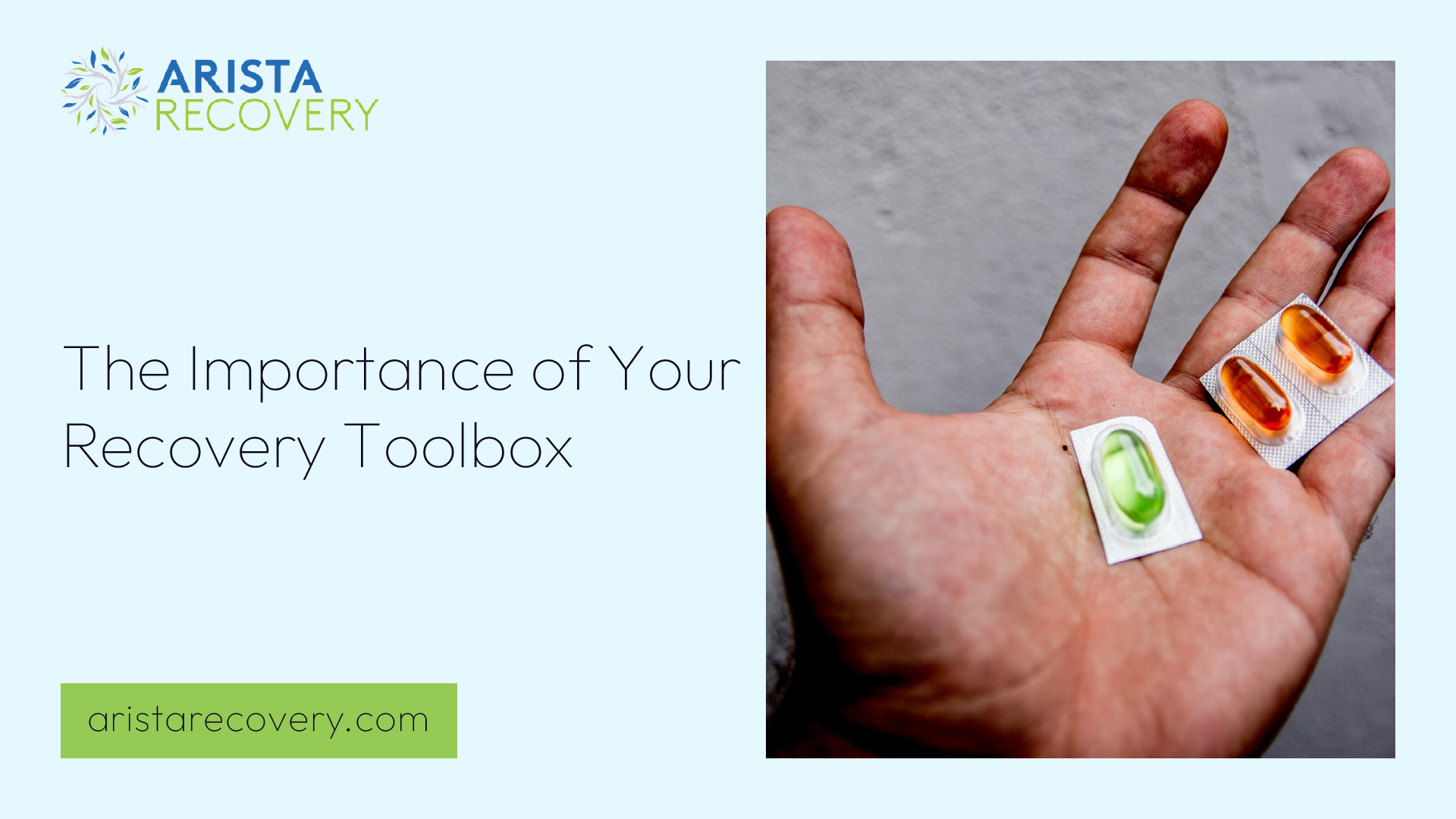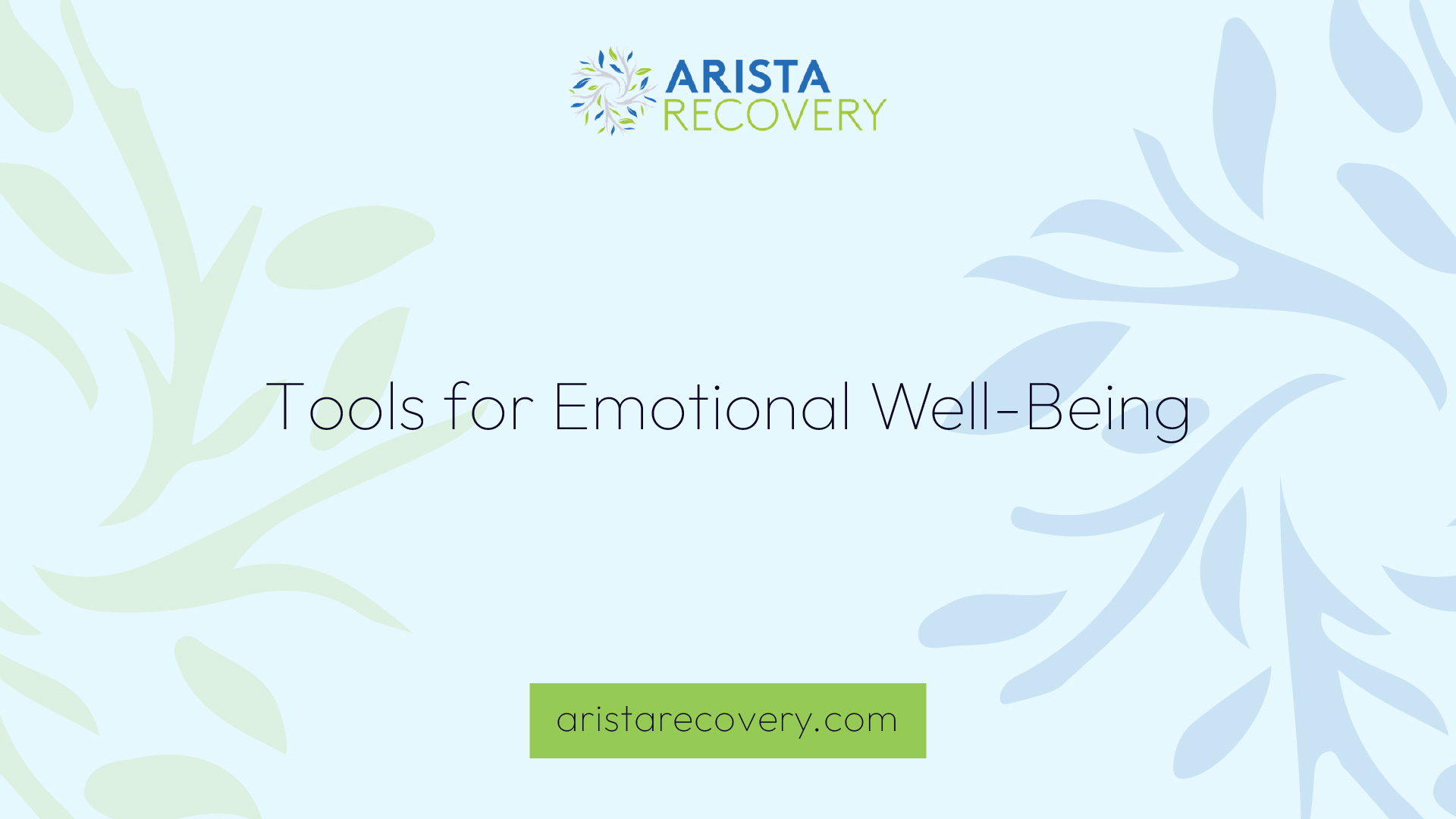The Importance of Your Recovery Toolbox


Understanding Recovery Journey
Importance of Recovery Toolbox
The recovery journey offers individuals the chance to reclaim their lives and embrace a healthier, more fulfilling future. Understanding this journey, as well as the role of a recovery toolbox, is essential for achieving sustained progress and personal growth [1]. A well-constructed recovery toolbox equips individuals with various strategies and resources to face challenges, manage cravings, and maintain long-term sobriety.
Building a recovery toolbox is crucial for navigating the difficulties and embracing the opportunities that arise during the recovery process. It provides a set of tools tailored to address substance abuse, mental health issues, or other forms of addiction [2]. Recovery is not a linear path, and each person's journey is unique. Thus, the toolbox allows individuals to customize their approach, empowering them to develop healthier coping mechanisms.
Components of a Recovery Toolbox
A comprehensive recovery toolbox should include several key components that support individuals throughout their recovery journey. These components help in managing emotions, building resilience, and fostering a supportive environment. The three main components of a recovery toolbox are:
ComponentDescriptionSelf-AwarenessUnderstanding one's triggers, feelings, and behaviors is fundamental. Individuals should reflect on their experiences and recognize patterns that may lead to relapse.Support SystemsBuilding a network of supportive individuals, such as friends, family, and professionals, can provide encouragement and accountability during recovery.Healthy Coping MechanismsIncorporating activities that inspire, ground, calm, or relieve cravings is essential. These strategies help individuals navigate through difficult times and emotions.
Each of these components plays a vital role in creating a personalized recovery toolbox. Incorporating healthy coping strategies not only supports individuals in their recovery journey but also enhances their overall emotional well-being. By utilizing the resources available in their recovery toolbox, individuals can better manage the challenges they face and strive towards a healthier lifestyle.

Building Your Recovery Toolbox
A well-structured recovery toolbox is vital for individuals navigating the challenges of addiction recovery. It encompasses various tools and strategies tailored to meet personal needs, promoting a successful journey towards sobriety. Three key components of a comprehensive recovery toolbox include self-awareness, support systems, and healthy coping mechanisms [1].
Self-Awareness
Self-awareness is fundamental in the recovery process. It involves understanding one’s emotions, triggers, and behaviors associated with addiction. By developing self-awareness, individuals can identify situations that may lead to relapse and recognize the feelings that accompany cravings. This insight allows for proactive management of one's emotional state and can significantly enhance recovery outcomes.
Benefits of Self-AwarenessDescriptionIdentifying TriggersRecognizing specific situations, people, or feelings that lead to cravings.Understanding EmotionsGaining clarity on emotions linked to addiction and learning to manage them.Setting Personal GoalsEstablishing realistic recovery goals based on individual strengths and challenges.
Support Systems
Support systems play a crucial role in addiction recovery. These systems can include family, friends, support groups, and professional counselors. Building a strong support network helps individuals feel connected and less isolated, which is essential for maintaining motivation throughout their recovery journey [4].
Types of Support SystemsDescriptionFamily SupportEncouragement and understanding from family members.FriendsPositive influences that promote sobriety and provide companionship.Support GroupsAccess to shared experiences and collective wisdom in peer-led groups.Professional HelpGuidance from therapists or counselors specializing in addiction recovery.
Healthy Coping Mechanisms
Incorporating healthy coping mechanisms into a recovery toolbox is essential for managing stress, anxiety, and triggers that may arise during the recovery process. These mechanisms can include mindfulness practices, physical activities, and engaging in hobbies. By having a range of healthy strategies available, individuals can effectively handle difficult emotions and reduce the likelihood of relapse.
Healthy Coping MechanismsExamplesMindfulnessMeditation, deep-breathing exercises, and yoga.Physical ActivityRegular exercise, walking, or team sports.Creative OutletsArt, music, or writing as forms of expression.JournalingRecording thoughts and feelings to process emotions and track progress.
Building a recovery toolbox involves selecting the appropriate tools and strategies that align with individual needs and preferences. This comprehensive approach supports individuals in effectively navigating the challenges of addiction recovery and fostering a balanced and fulfilling life.

Tools for Emotional Well-Being
Incorporating various tools into your recovery toolbox can significantly enhance emotional well-being and foster personal growth. This section discusses three key tools: therapy and counseling, mindfulness and meditation, and journaling and creative expression.
Therapy and Counseling
Therapy and counseling are essential components of a comprehensive recovery toolbox. Therapeutic approaches such as cognitive-behavioral therapy (CBT), dialectical behavior therapy (DBT), and motivational interviewing play a vital role in addiction recovery. These methods help individuals address the underlying causes of addiction, develop effective coping skills, and promote long-term sobriety.
Type of TherapyPurposeCognitive-Behavioral Therapy (CBT)Helps change negative thought patterns and behaviors.Dialectical Behavior Therapy (DBT)Focuses on emotional regulation and interpersonal effectiveness.Motivational InterviewingEnhances motivation to change and commit to recovery.
Support groups and communities also provide a valuable source of connection and understanding for individuals in recovery. These groups offer a safe, non-judgmental space to find support, accountability, and guidance from others with firsthand experience in addiction and recovery.
Mindfulness and Meditation
Mindfulness and meditation are powerful practices that can greatly improve emotional well-being during recovery. These techniques help individuals become more aware of their thoughts and feelings, allowing them to respond to triggers and cravings more effectively. Mindfulness practices encourage living in the present moment, which can reduce anxiety and stress.
Benefits of mindfulness and meditation include:
BenefitDescriptionReduces stressHelps individuals manage anxiety and stress levels.Enhances self-awarenessEncourages a deeper understanding of thoughts and emotions.Improves focusIncreases concentration and clarity of thought.
Incorporating mindfulness and meditation into a daily routine can provide long-term benefits for emotional stability and resilience in recovery [1].
Journaling and Creative Expression
Journaling and creative expression are valuable tools for individuals in recovery. Writing down thoughts and feelings can provide an outlet for emotions and help process experiences. This practice can also serve as a reflective tool, allowing individuals to track their progress in recovery.
Creative expression, whether through art, music, or other forms, can foster healing and self-discovery. Engaging in creative activities can inspire, comfort, ground, calm, or relieve cravings, ultimately supporting individuals in their recovery journey.
Type of ExpressionBenefitsJournalingHelps process emotions and track progress.ArtEncourages creative expression and emotional release.MusicProvides comfort and a sense of connection.
By incorporating therapy and counseling, mindfulness and meditation practices, as well as journaling and creative expression into your recovery toolbox, individuals can enhance their emotional well-being and foster personal growth.
Holistic Approaches in Recovery
Holistic approaches play a significant role in addiction recovery, offering various methods to support emotional, physical, and mental well-being. Integrating practices like yoga, exercise, and creative activities into your recovery toolbox can enhance the recovery experience and provide essential coping mechanisms.
Yoga and Meditation
Yoga and meditation are essential components of a holistic recovery plan. These practices help individuals stay present, reduce cravings, and effectively manage stress [6]. Engaging in yoga promotes physical flexibility and strength while fostering a sense of inner calm. Meditation assists in developing mindfulness, which can lead to better emotional regulation and a deeper understanding of one's feelings.
Benefits of Yoga and MeditationReduces stress and anxietyEnhances emotional regulationPromotes physical flexibilityFosters mindfulness and self-awareness
Exercise and Physical Well-Being
Regular physical activity is a crucial aspect of recovery. Exercise not only improves cardiovascular health but also boosts mood and energy levels [4]. Engaging in physical activities helps manage stress and cravings, providing a healthy outlet for emotions. It is essential for individuals in recovery to incorporate various forms of exercise that they enjoy, as this increases adherence and promotes long-term commitment.
Types of ExerciseCardio (running, cycling)Strength training (weights, resistance bands)Flexibility exercises (yoga, stretching)Recreational activities (dancing, hiking)
Creative Activities
Creative activities serve as a vital outlet for self-expression and personal growth during recovery. Engaging in hobbies such as painting, writing, or playing music can provide therapeutic benefits and enhance emotional sobriety. These activities allow individuals to process their experiences and feelings in a constructive manner, promoting overall well-being.
Benefits of Creative ActivitiesEncourages self-expressionReduces stress and anxietyPromotes personal growthEnhances emotional well-being
Incorporating these holistic approaches into your recovery toolbox can significantly improve the journey towards recovery. Each method offers unique benefits that cater to an individual's emotional and physical needs, ultimately fostering a more comprehensive and supportive recovery experience.
Medications in Recovery
Role of Medications
Medications are a vital component of a comprehensive recovery toolbox for individuals dealing with addiction. They address the physiological aspects of substance use disorders, helping to manage cravings, reduce withdrawal symptoms, and maintain sobriety. Medication-Assisted Treatment (MAT) combines medications with behavioral therapy or counseling to enhance recovery outcomes, reduce the risk of relapse, and improve overall treatment effectiveness [2].
Examples of Medications
Several medications are commonly used to support individuals in their recovery from substance use disorders. Below is a table highlighting some key medications and their purposes:
MedicationUsed ForDescriptionSuboxoneOpioid addictionHelps manage cravings and withdrawal symptoms.NaltrexoneOpioids and AlcoholReduces cravings and the risk of relapse.CampralAlcohol use disorderAids in maintaining sobriety by reducing cravings.DisulfiramAlcohol use disorderCauses unpleasant reactions when alcohol is consumed.
Information sourced from Townsend.
Benefits and Considerations
The use of medications in recovery offers numerous benefits. They can significantly reduce cravings, help manage withdrawal symptoms, and support long-term sobriety. Evidence shows that medications like Naltrexone are more effective than a placebo in decreasing alcohol use and cravings, as well as delaying relapse.
However, it's essential to consider that medications should not be viewed as a standalone solution. They are most effective when integrated into a broader treatment plan that includes therapy, support groups, and lifestyle changes. Individuals should consult healthcare professionals to determine the most appropriate medication for their specific needs and to monitor any potential side effects.
Medications can be an essential tool within "your recovery toolbox," providing critical support on the journey toward recovery.
Community Support in Recovery
Building a strong support network is a fundamental aspect of any recovery journey. A supportive community can offer invaluable resources, encouragement, and a sense of belonging, all of which are essential for maintaining motivation and accountability.
Building a Supportive Community
Creating a supportive community involves connecting with individuals who share similar experiences and challenges. These connections can be made through various avenues, including support groups, therapy sessions, and community events. Support groups such as Alcoholics Anonymous (AA) and Narcotics Anonymous (NA) serve as vital components of a recovery toolbox, providing a safe space for individuals to share their experiences, discuss challenges, and receive support.
Type of Support GroupPurposeAlcoholics Anonymous (AA)Support for individuals recovering from alcohol addiction.Narcotics Anonymous (NA)Support for individuals recovering from drug addiction.Online Support GroupsVirtual platforms for sharing experiences and receiving support.
Online Resources and Apps
In today's digital age, a wealth of online resources and applications are available to aid individuals in their recovery process. These tools can provide easy access to support networks, educational materials, guided meditations, and recovery tracking features. Some popular resources include:
ResourceDescriptionSMART RecoveryA self-help program for individuals recovering from addiction.Sober GridA social networking app for individuals in recovery to connect.Recovery PathAn app for tracking sobriety and accessing recovery resources.
These resources can enhance the recovery toolbox by offering additional support and guidance.
Importance of Connection
Connection plays a crucial role in the recovery process. Establishing relationships with others who understand the challenges of addiction fosters a sense of belonging and accountability. Individuals in recovery can share their struggles and triumphs, helping to alleviate feelings of isolation and shame. A supportive community not only encourages personal growth but also enhances the sustainability of the recovery journey [6].
By engaging with others on similar paths, individuals can cultivate a network that supports their ongoing recovery efforts, ultimately strengthening their overall well-being and resilience against relapse.
References
[2]:
[3]:
[4]:
[5]:
[6]:
[7]:
[8]:
You’re not alone in this.
When mental health challenges and addiction intersect, it can feel isolating. At Arista, we offer compassionate, evidence-based, and trauma-informed care to help you heal, grow, and move forward.
You’re not alone in this.
When mental health challenges and addiction intersect, it can feel isolating. At Arista, we offer compassionate, evidence-based, and trauma-informed care to help you heal, grow, and move forward.
Support that moves with you.
You’ve taken a brave first step. At Arista Recovery, we’re here to help you continue with best-in-class care designed for long-term healing and support.
.webp)






